
Latin America: Week in Review, Venezuela
U.S. Hits Venezuelan State Oil Company With Sanctions Due To Iran Ties
May 25, 2011 By Staff
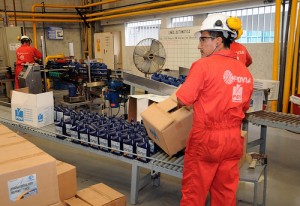
A PDVSA plant in Guayaquil, Ecuador.
Today in Latin America
Top Story — Bonds for Venezuela’s state-owned oil company, Petróleos de Venezuela (PDVSA), plunged after the United States issued sanctions on the company for supporting Iran’s nuclear energy industry.
The sanctions show the U.S.’s impatience toward Venezuelan President Hugo Chávez’s embrace of Washington’s enemies, such as Iran’s Mahmoud Ahmadinejad and Libya’s Muammar Qaddafi. The U.S. said that PDVSA violated the Iran Sanctions Act of 1996 by shipping some $50 million worth of a fuel additive to Iran between December and March.
“These sanctions constitute a warning shot from the U.S. government to Venezuela in its dealings with the Iranian regime,” said Boris Segura, Latin America economist at Nomura Securities International. “The authorities’ reaction at this juncture is key. If they interpret these sanctions as an attack of the ‘empire’ on the revolution, we could expect further measures to try to armour plate the country from potentially more severe sanctions.”
PDVSA is now prohibited from competing for U.S. government contracts, from getting financing from the Export-Import Bank of the United States and from obtaining U.S. export licenses. PDVSA can no longer offer fuel to the U.S. Strategic Petroleum Reserve – a role it has played in the past — and its exclusion from Export-Import Bank will boost financing costs.
Besides the prohibitions, the sanctions may also deter investors from projects with the PDVSA. “Money is cowardly, and sanctions like these — which threaten money — will have their consequences,” said Juan Fernández, who worked at PDVSA for 18 years and and was the company’s former General Manager for Financial Planning and Global Business, according to The Miami Herald.
The sanctions, however, do not bar Venezuela from exporting crude to the United States.These caveats are meant to stave off higher oil prices in the United States and oil market conditions were considered when tailoring these sanctions.
“Obviously, we consulted closely with the economic agencies, including the DOE,” said Deputy Secretary of State James Steinberg.
Venezuela’s oil minister Rafael Ramírez denied that the country has sent gasoline to Iran since sanctions on the Middle Eastern nation were approved, but Asdrubal Chávez, vice president of PDVSA, said in 2010 that Venezuela had been selling as many as 20,000 barrels a day of gasoline to Iran.
A source at PDVSA told Reuters that the company expects little or no commercial impact from U.S. sanctions. The source added that the move appeared to be primarily political, intended by the government of U.S. President Barack Obama to appease senators critical of President Chávez.
PDSVA sells fuel in the U.S. under the CITGO brand and Venezuela is the United States’ fifth-largest oil exporter.
Just Published at the Latin America News Dispatch
- About 140,000 Uruguayans left their country in the aftermath of the 2001 financial crisis. Now, tiny Uruguay’s booming economy is luring them back. Mariana Bueno reports from Montevideo.
- An estimated 300,000 migrants cross Mexico’s southern border every year on their way to the United States. A network of shelters has developed across Mexico to aid the migrants in their travels. Photographer John Sevigny visited one of these shelters in the northern city of Saltillo and shared these images with us.
Headlines from the Western Hemisphere
North America
- The head of Mexico’s central bank said that the IMF does not need a European to help it resolve a debt crisis in the euro zone.
- A U.S. federal judge disqualified Monday the lead attorney for Mexican drug kingpin Benjamin Arellano Felix, claiming his participation in the case was marred by potential conflicts of interests.
- Thousands of teachers in the southern Mexican city of Oaxaca went on strike after state officials provided “minimal and insufficient” responses to the teacher’s demands.
Caribbean
- Health officials in the Dominican Republic reported hundreds of new cases of cholera, as the outbreak spreads through most of the country.
- Prominent Cuban artist Pedro Pablo Oliva said he was removed from his legislative post and forced to close his studio after contacting dissidents and posting comments to an anti-government blog.
- Puerto Rico hopes to become the top destination for wedding tourism in the Caribbean, a market that takes in $16 billion a year worldwide.
Central America
- Guatemalan police arrested five Mexican drug cartel members with alleged links to the May 15 massacre of 27 people in Petén.
- The Organization of American States will vote next month to restore Honduras as a member of the regional group after the country agreed to ensure the safe return of former President Manuel Zelaya.
- The manager of Honduran daily La Tribuna is said to be out of mortal danger in a Tegucigalpa hospital after being shot several times while driving in this capital, the newspaper reported Tuesday.
- Panama and Costa Rica will sign free trade agreements with Peru this week, with both agreements expected to come into force in January 2012.
Andes
- A judge issued an arrest order Tuesday for María del Pilar Hurtado, the former head of Colombia’s intelligence agency, known as the DAS, over her alleged involvement in a domestic spying scandal.
- Colombia issued a new security plan on Tuesday, vowing to break up criminal gangs, minimize drug trafficking and improve security in the next three years in the world’s No. 1 cocaine producer, still wracked by a guerrilla war.
- A U.S. banking regulator has fined four board members of Pacific National Bank, a subsidiary of Ecuador’s state-owned Banco del Pacífico and its former chief executive for failing to correct anti-money laundering problems.
- Thousands of protesters have gathered over the last two weeks in the Peruvian town of Puno, along the Bolivian border, to demand the cancellation of a mining concession to a subsidiary of Canada’s Bear Creek. Global Post’s Qué Pasa blog has pictures.
Southern Cone
- Brazilian President Dilma Rousseff’s chief-of-staff came under fire for a controversy over the wealth he amassed during his time as a congressman through property dealings at his consultancy.
- Brazil’s Congress debated Tuesday a proposal to loosen restrictions on the amount of forested areas that can be legally cut and grant an amnesty to those who illegally felled trees before July 2008.
- Argentine police arrested a Hawaiian psychiatrist indicted on charges of falsely billing $1 million in insurance claims.
- The Asunción zoo in Paraguay is seeking a mate for the last known hyacinth macaw in the country.
Image: Presidencia de la República del Ecuador @ Flickr.
Subscribe to Today in Latin America by Email
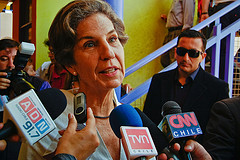
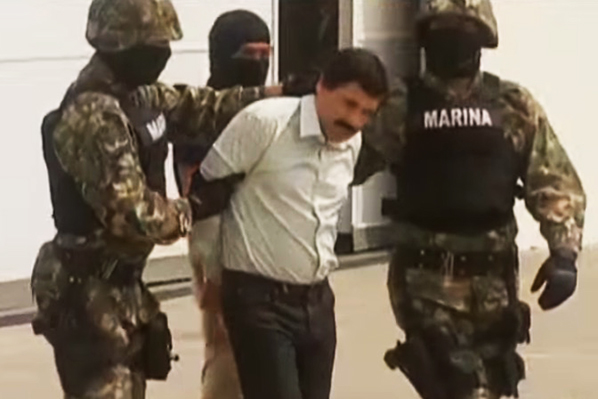
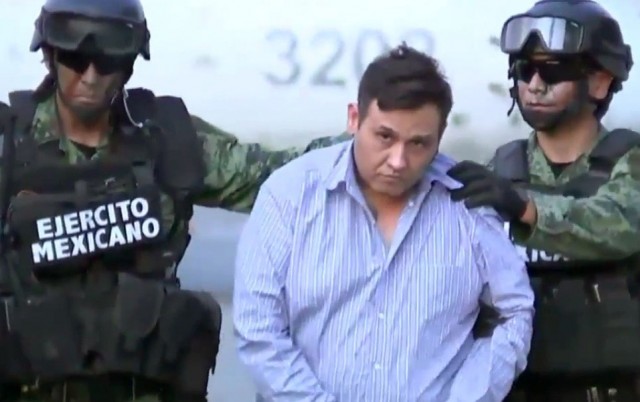
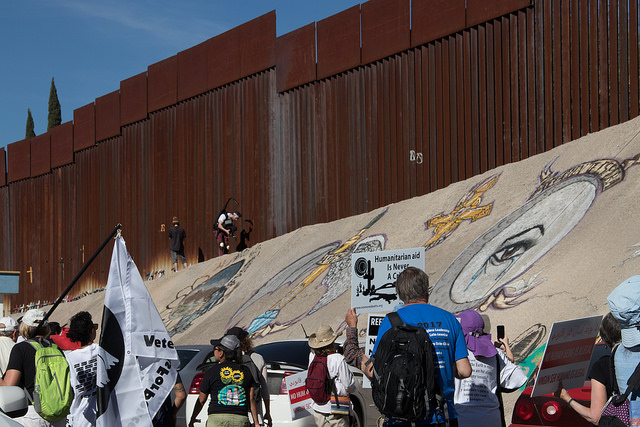
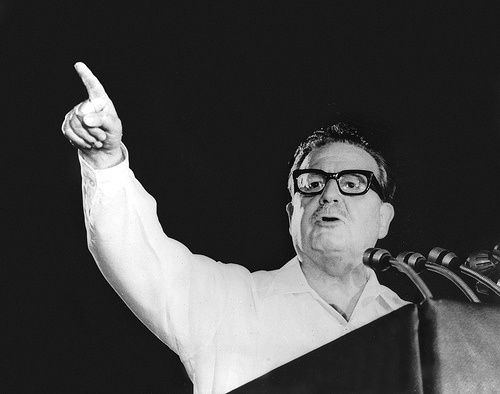
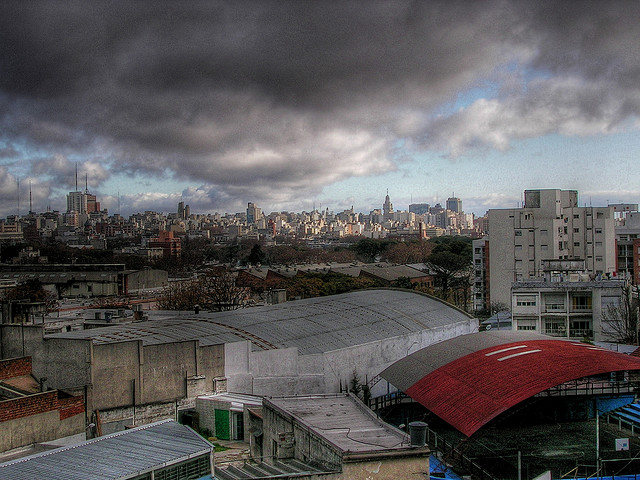
1 Comment
[…] Energy and Petroleum Rafael Ramírez confirmed Monday that he would file a complaint with OPEC over the sanctions imposed by the U.S. on the state-run Petróleos de Venezuela (PDVSA) oil company for allegedly violating the Iran Sanctions Act of 1996 by shipping some $50 million […]
Comments are closed.